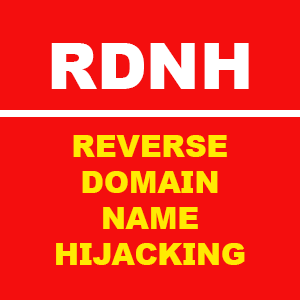
RDNH finding for Tobam.com
The owner of the domain Tobam.com fired back at the UDRP, winning it with a finding of Reverse Domain Name Hijacking.
The aged domain was registered as a personal last name, according to the Respondent:
“In 2000, the Respondent set up a business with a view to offering personalised surname and business email addresses. To this end he registered some 3,000 surname domain names as well as various potential future business names comprising simple two-syllable words such as the disputed domain name.
The Respondent made considerable efforts to check for conflicting rights before registration of domain names, including in relation to the disputed domain name. To the best of his knowledge, no one traded under the name “Tobam” at the time of registration of the disputed domain name on October 11, 2004.”
Indeed, no use of the TOBAM mark was made by the Complainant, TOBAM of Paris, France, until 2008.
Between 2011 to 2013, purchase negotiations between the parties were made on Sedo; the prices asked by the Respondent ranged from $24,500 to $33,000 dollars, and the Complainant offered between $500 and $5,000 dollars.
During these negotiations, the Complainant asserted its trade mark rights and the Respondent repeatedly asked for details, asserting that to the best of its knowledge there were no third party trade mark rights at the date of registration of the disputed domain name and that the Respondent would transfer the disputed domain name to the Complainant at no cost if its trade marks did predate registration of the disputed domain name.
The Complainant did not provide details of its trade marks.
The sole WIPO panelist, Adam Taylor, delivered a finding of Reverse Domain Name Hijacking for the following reasons, citing a victory by attorney John Berryhill in the process:
- The Complainant has failed by a large margin. In the Panel’s opinion, the Complainant knew or at least should have known that it could not prove one of the essential UDRP elements. The Complainant’s representatives quoted extensively from UDRP case law and the Panel thinks it unlikely that they were unaware of the current overwhelming view of UDRP panelists as to the need to prove registration as well as use in bad faith.
- The Complaint lacks candour in that it makes no mention of the communications between the parties via the Sedo website in 2011 – 2013 regarding purchase of the disputed domain name by the Complainant. Even if the Complainant had no “written evidence” of such communications, and even if it were unable to access the Sedo site to obtain such evidence (and the Complainant has not clearly stated that that was so), the Complainant should at the least have mentioned the exchanges. Whether or not the Complainant considered that these matters were directly relevant to bad faith, nonetheless the Complainant relied on its allegedly unanswered 2016 letter and email as evidence that the Respondent had provided false contact details and so the failure to mention the previous extensive communications conveyed the misleading impression that the Respondent was generally evasive and non-responsive.
- In the Panel’s view, this is a classic “Plan B” case, i.e., using the Policy after failing in the marketplace to acquire the disputed domain name. This stratagem has been described in several earlier UDRP cases as “a highly improper purpose” and it has contributed to findings of RDNH. See, e.g., Patricks Universal Export Pty Ltd. v. David Greenblatt, WIPO Case No. D2016-0653 and BERNINA International AG v. Domain Administrator, Name Administration Inc. (BVI), WIPO Case No. D2016-1811.
- In the course of the pre-complaint correspondence, the Respondent referred to the Complainant’s repeated failure to disclose details of its registered trade marks in response to the Respondent’s requests and asserted that the Complainant was trying to reverse hijack the disputed domain name, which predated the Complainant’s trade mark. This warning should have given the Complainant serious pause for thought but it ploughed on regardless. Indeed, the Complaint rather skirted around the timing issue, giving little detail about the Complainant’s trading activity and at one point asserting that the word “tobam” was arbitrary and not one which would legitimately be “chosen or maintained” unless seeking to create an impression of an association with the Complainant. Whereas the Complainant knew that the disputed domain name could not possibly have been “chosen” with the then non-existent Complainant in mind. The Complainant only really faced up to the timing issue in its supplemental filing.
To read the full text of this UDRP against the domain tobam.com, click here.
Copyright © 2025 DomainGang.com · All Rights Reserved.












